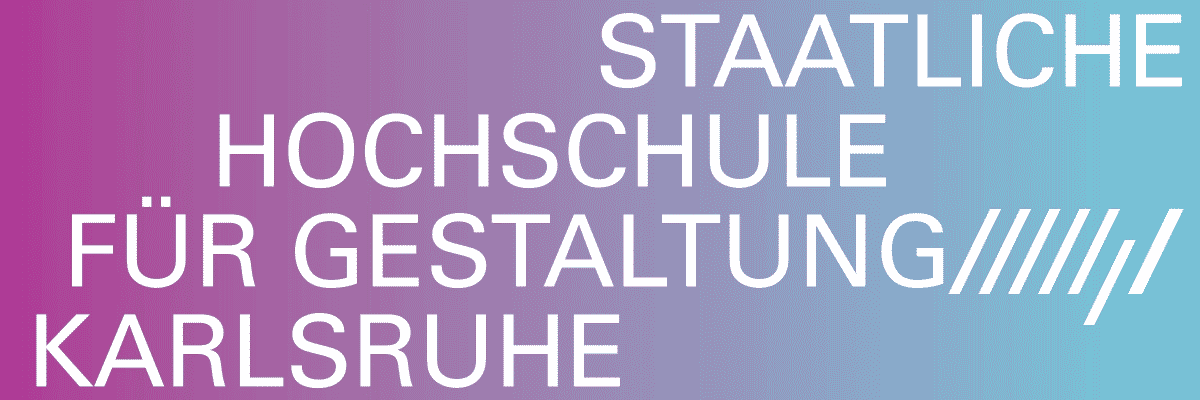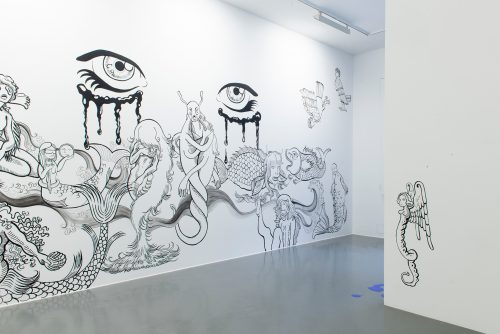
Valentina Plank, Len Bay
no matter what
Project Info
- 💙 a&o Kunsthalle
- 💚 Tanja Heuchele, Jonas Liesaus
- 🖤 Valentina Plank, Len Bay
- 💜 Jonas Liesaus
- 💛 Michael Ehritt
Share on

Exhibition view 1
Advertisement

Exhibition view 2

Len Bay, Giving space to an empty space (1/7), 2025, Plaster, Aluminium, Print, Acrylic Glass, 60 x 50 x 2,5 cm, Photo: Valentina Plank

Exhibition view 3

Len Bay, Giving space to an empty space (congrats on the wedding), 2025, Sand, Concrete, Fiberglass, Tiles, Stainless steel, Hammer finish, Tile paint, Postcard, N/A

Exhibition view 4

Len Bay, cute aggression (small p), 2024, Stainless steel, 15 x 15 x 12 cm and Len Bay, cute aggression (long p), 2024, Stainless steel, 65 x 8 x 9 cm

Exhibition view 5

Valentina Plank, Untitled (loop #1), 2025, Stainless steel, 30 x 30 x 30 cm

Valentina Plank, Untitled (clutch), 2025, Foam, Bar, 120 x 200 x 115 cm (Detail)

Exhibition view 6

Valentina Plank, Untitled (loop #2), 2025, Stainless steel, 30 x 65 x 48 cm

Exhibition view 7

Len Bay, cute aggression (snake), 2025, Stainless steel, 91 x 15 x 133 cm

Valentina Plank, Untitled (splice), 2024, Aluminium, Foam, 30 x 205 x 105 cm

Valentina Plank, Untitled (toes), 2024, Steel, Wax, Linseed oil, 33 x 18 x 14 cm

Exhibition view 8
Dealing with material, its inscribed traces, connotations, stories, meanings and effects is at the centre of the duo exhibition ‘no matter what’ by artists Valentina Plank and Len Bay.
The point of reference for their respective artistic processes is the world of things that surrounds us.
Industrially manufactured furniture, rooms and architecture are omnipresent. In an age that Donna Haraway describes as ‘chthulucene’, the artists believe that it is becoming increasingly important to attribute greater significance to objects, the environment and non-human actors in general, as well as to explore their history, meaning and expressiveness more intensively.
Steel, aluminium and stainless steel, insulating materials and sheet metal become carriers of meaning and form the basis for artistic exploration. In dealing with classical craftsmanship and industrial production as well as the materials that often appear ‘raw’, references to Minimal Art become visible. However, Plank and Bay go one step further: the material used by the two artists is not limited to its external appearance. The haptics, tactile properties and sensory perception of the installations and sculptures turn them into vessels that can be charged - filled - with the viewer's own experiences.
In Len Bay's ‘total’ installations, this becomes clear through participatory elements. Visitors are invited to enter the installations and interact with them. This is the only way to perceive them in their entirety. Bay is driven by the questions: ‘How do the bodies of the viewers themselves become materiality? And how does the artwork change when it transitions from a traditional image carrier to an increasingly total installation?’
Valentina Plank enables an open approach to her works through a transparent and studio-based process. The focus is on trying out and weighing up the relationship between chance, trace and control. Even if individual work steps are comprehensible, curiosity about the undiscovered and surprise are at the centre. The playful element is supported by the precise positioning in the space and is in no way undermined. On the contrary, the intuitive approach gives rise to unexpected sensory impressions and perceptual possibilities.
At the a&o Kunsthalle, Valentina Plank and Len Bay are trying out different modes and approaches to artistic work. The exchange with each other, questioning of established structures and planning a joint exhibition also mean constantly (re)localising themselves. Plank and Bay use multimedia in their work and avoid clear categorisation. Image, object, sculpture and installation blur into a holistic view. In doing so, the two artists negotiate the interplay of material, man and nature beyond the boundaries of genres.
Jonas Liesaus




